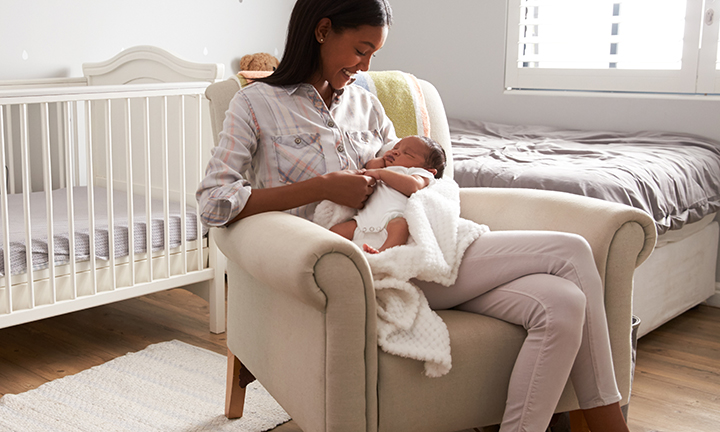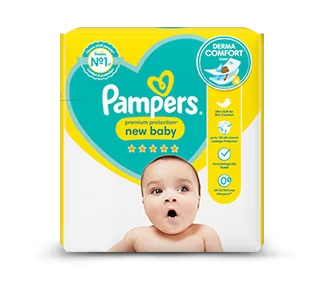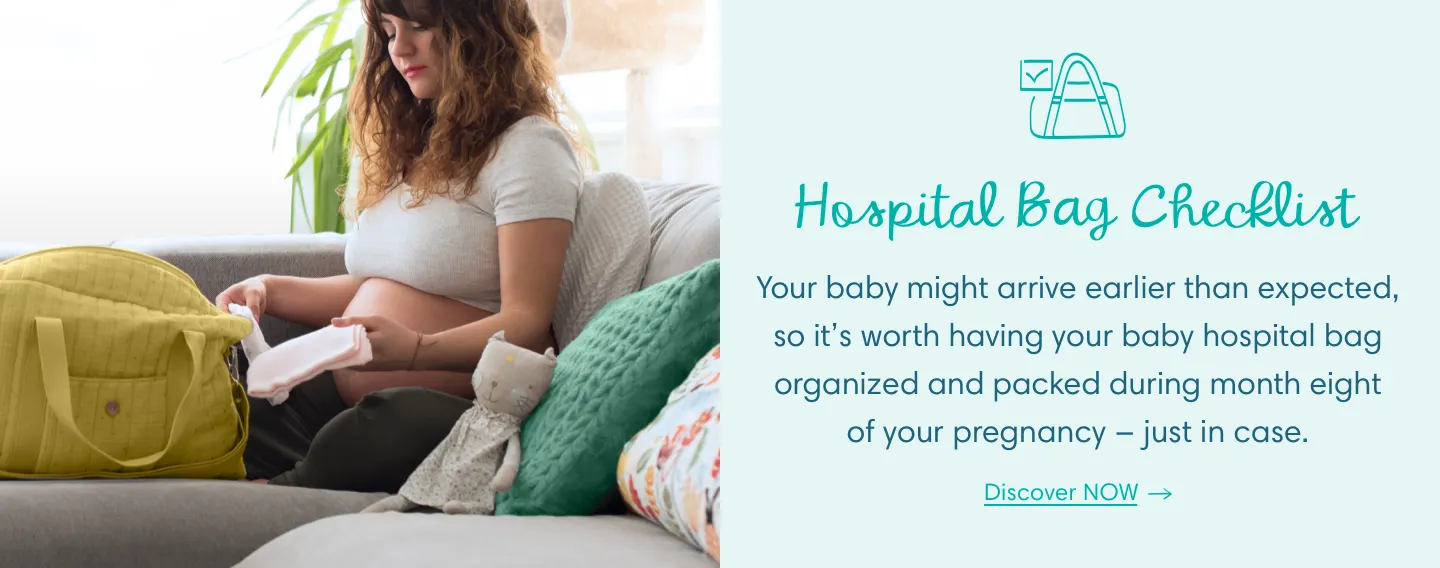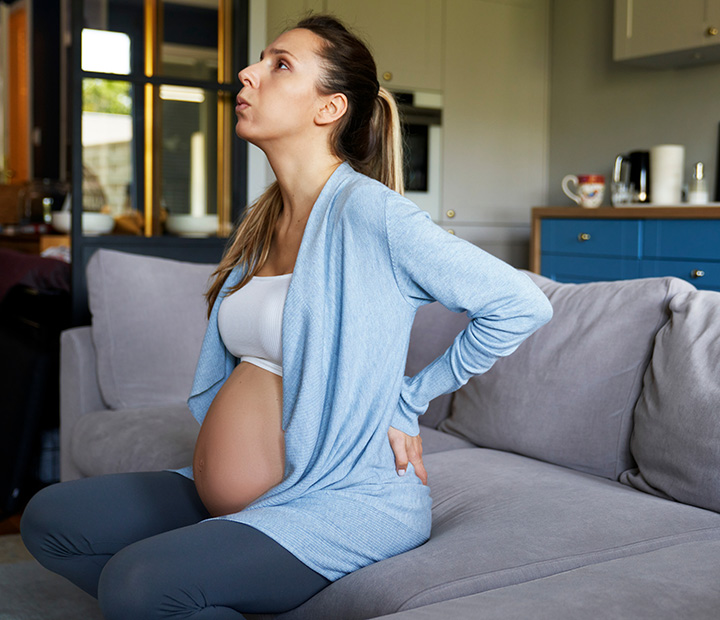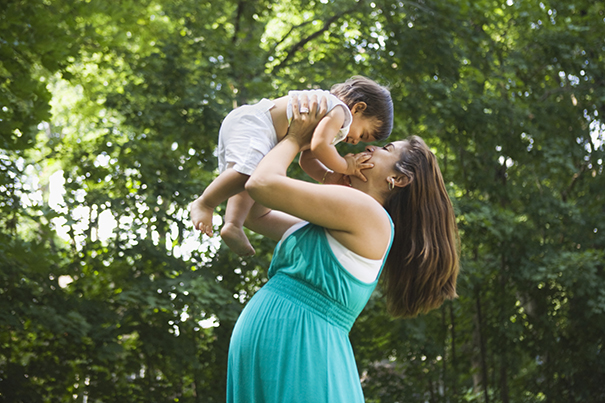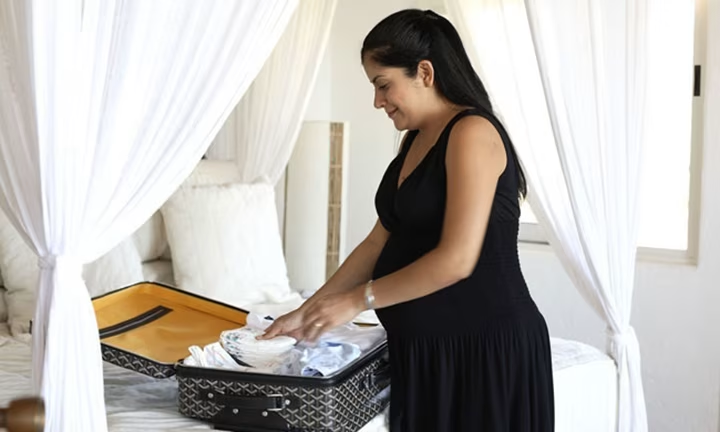
Hospital Bag Checklist – What to Pack for Mum, Baby and Partner
Getting ready for your baby’s arrival can feel overwhelming, but a well-packed hospital bag can offer real peace of mind on the big day. A thorough hospital bag checklist ensures you, your birth partner, and your newborn have everything you need for labour, delivery and your hospital stay. Essentials typically include personal items, comfort items, important documents, and your baby’s needs.
Here’s a quick overview of what to pack in your hospital bag:
By organising your hospital bag by category and packing it by week 36, you’ll be better prepared for a smooth experience. Below, we break down each item in detail to help you build the perfect hospital bag checklist.
When to Pack Your Hospital Bag
Are you wondering, 'When should I pack my hospital bag'? Your baby might arrive earlier than expected, so it’s worth having your hospital bag (or bags if you want one for before and after delivery) packed during the third trimester – at about week 36 − just in case. You might find it easier to pack with your birth partner so you can both double-check you haven’t forgotten anything.
Then, once all the bags are packed, keep them handy, either in the car or near the door, so you'll be ready to go at a moment's notice.
Keep reading for a full list of what to pack in your bag for the hospital and download your hospital bag checklist below!
What to Pack in the Hospital Bag for Mum (Labour and Delivery)
Being ready for labour and delivery includes having a few administrative items handy in your hospital bag, as well as being prepared to pass the time as you wait for your baby to be born:
Hospital file
Have your medical records handy, so that your doctors can easily see your medical history.
You might have discussed your birth plan with your medical team, but having a few copies printed and available for your healthcare team means that everyone can refer to it if last-minute questions arise.
Dressing gown
A soft dressing gown is useful for pacing around during labour, or afterwards, if you spend some time in hospital.
Socks
Your feet may get cold during labour.
Slippers and flip-flops
You’ll want slippers that are comfortable and easy to slip in and out of to wear as you walk around the hospital ward. Pack some flip-flops for using in the shower.
Lip balm
Your lips can get chapped during labour. Having some lip balm on hand will help keep your lips hydrated and comfortable.
Body lotion or massage oil
Some find a little massage during labour relaxing. If this could be you, pop some lotion or oil in your hospital bag.
Water spray and sponge
During labour, if you start to feel hot, it can help to spray some water on your face and neck, or to sponge some cool water on your forehead.
Comfortable pillow(s)
Your hospital will provide you with pillows, but they might not be the right kind for you. If you have a favourite pillow at home, then you may want to bring it along as well.
Relaxing entertainment
Pack some things to help you pass the time, like a book, magazines, a tablet with movies or a series downloaded on it, or a music player.
Eye mask and earplugs
To help you get rest in a busy and bright maternity ward, an eye mask and earplugs could be just what you need during the downtimes of labour, or for your well-deserved shuteye after the delivery.
Being comfortable during labour and delivery is key, and many of the above items for your hospital bag may help you relax a bit. But, let’s be honest, fuzzy socks and soothing music might not cut it! Take the quiz below to discover your personalised plan for pain management during labour.
Hospital Bag Checklist for C-Section
Not sure what to pack in your hospital bag for a caesarean? If you’re having a caesarean, or simply want to be prepared, our other checklists can still help you decide what to pack in your c-section hospital bag. However, these additional c-section hospital bag checklist items may come in handy before and after your delivery.
These items can make your hospital stay more comfortable and support your healing process after a C-section.
You might also want to check with your healthcare provider to see if there’s anything specific you need to bring in your post-caesarean hospital bag.
What to Pack in the Hospital Bag for Mum (After Delivery)
To make your post-delivery hospital stay as comfortable as possible, pack these essentials in your hospital bag checklist for mum and head off with confidence.
What to Pack in the Hospital Bag for Your Birth Partner
Being a birth partner often means you'll be by your loved one's side in hospital. To help things go smoothly, put together a practical hospital bag with the items you'll actually need. Here's a curated list of essentials for dads, partners, friends, family members, or anyone who will be your birthing partner:
What to Pack in the Hospital Bag for Your Baby
Wondering what to pack in your baby's hospital bag? Before you know it, you’ll be holding your little one in your arms. The following list of newborn essentials will come in useful when they arrive:
Babygrows
Hospital policies can vary on what newborns can be dressed in, so find out ahead of time what to pack in your hospital bag. You may need to add to what the hospital provides in terms of accessories and layers. Remember, with babygrows, it’s a good idea to choose those that fasten up at the front.
Socks and booties
Newborns can get cold easily, so take some socks and booties just in case. Even during skin-to-skin contact, your newborn can wear a hat and socks.
Blanket
The hospital will likely provide blankets, but a blanket of your own is always good to have on hand to use during skin-to-skin contact. It can also be used to keep your baby warm on the way home.
Nappies
Bring some nappies, especially for newborns, like Pampers Premium Protection New Baby. So, how many newborn nappies do you need? Your newborn might go through 10-12 nappies each day.
Wipes
Newborns' skin is particularly sensitive, so choose baby wipes suitable for newborns, such as Pampers Harmonie New Baby Wipes.
Muslin squares
These can be draped over your shoulder or placed underneath the baby to prevent dribbles from getting on your clothes. You could also pack some bibs for this purpose, too.
Going-home outfit
Consider the weather conditions: a bodysuit, booties and hat could be fine during the warmer months, but in winter pack mittens and a jacket or snowsuit as well. But remember, thick coats, jackets or snow suits should always be removed before putting your baby in the car seat for optimum safety.
Car seat
This obviously isn't for the hospital bag, but the right car seat should be installed in your car around the same time you pack your baby bag so it's ready for the hospital.
Printable Hospital Bag Checklist
Download our free, printable hospital bag checklist below to keep track of what you’ve packed.

Download Hospital Bag Checklist
What Not to Pack in Your Hospital Bag
Although it’s a great idea to be prepared, you don’t need to overpack your hospital bag. And there are some things that many hospitals don’t allow, so it’s a good idea to double-check beforehand.
Here are a few things you probably won’t need to pack in your hospital bag checklist:
Sibling Hospital Bag Checklist
If your older child/children will be staying with family or a carer while you're in hospital, pack a small bag to help them feel comfortable and cared for:
This little bag helps keep things familiar and fun for the siblings-to-be while you focus on welcoming the new baby.
FAQS AT A GLANCE
It's sensible to wear loose, comfortable clothing during labour. Your hospital may provide a gown for the delivery, but you may also wish to bring your own nightdresses, dressing gown, slippers, socks and nursing bras for after the birth.
The Bottom Line
With this hospital bag checklist, Mum, Dad and baby can be well prepared for time in hospital. Read up on the signs of labour, which includes things like your waters breaking or seeing the mucus plug discharge.
If you're approaching your due date, it's helpful to know how to time your contractions as well as how to spot other signs of labour. Contact your midwife or doctor if you think you're going into labour. They'll be able to let you know when it's time to grab your hospital bag and be on your way.
While you’re here and in the mood for preparing for the birth of your baby, download the Pampers Club app. You can use the app to earn rewards for all the nappies you’ll be buying once your little one’s here.
Read more about Pregnancy
Related Articles
Join Pampers Club and get:
